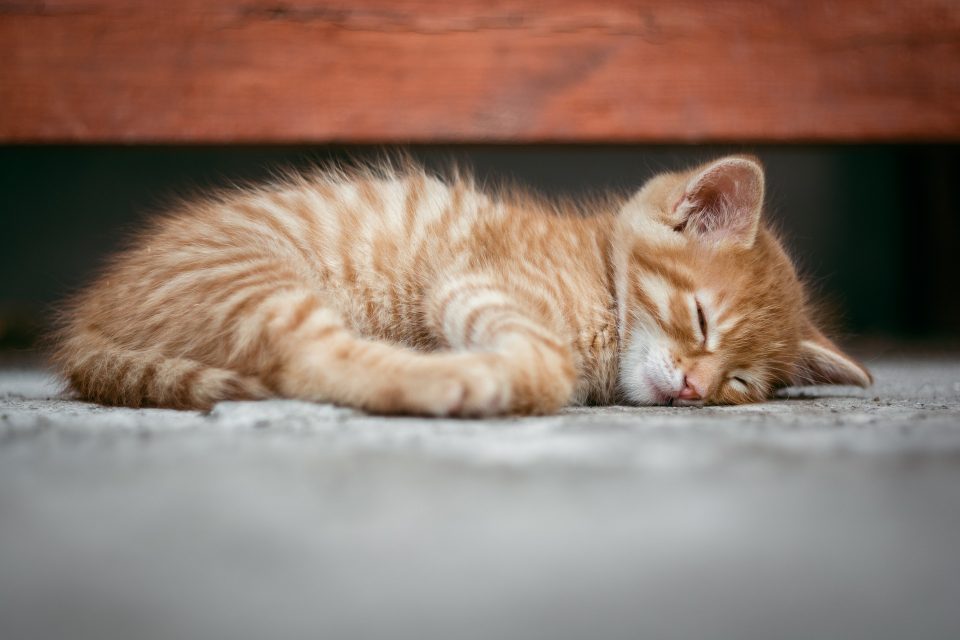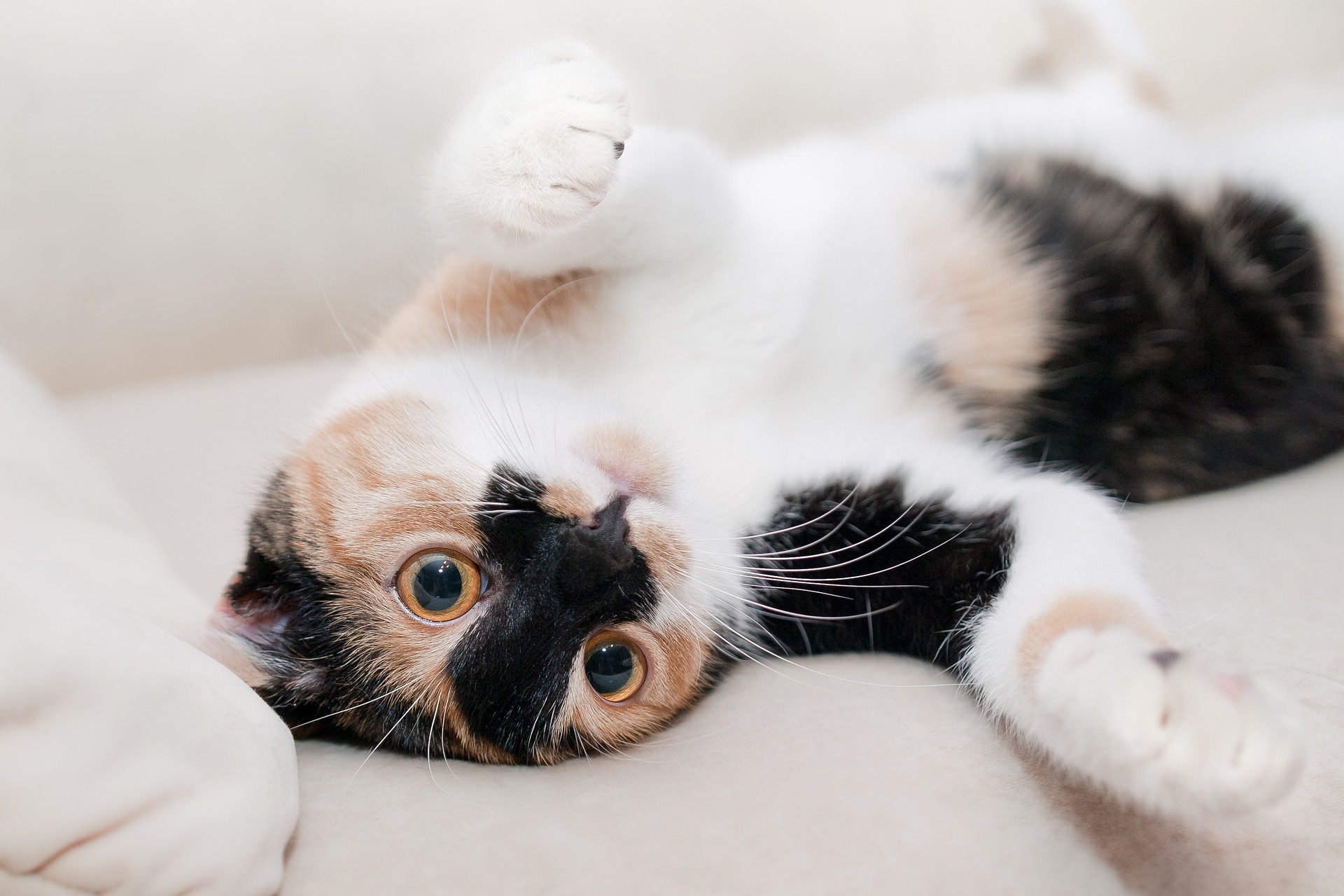
Your Guide to Adopting Your First Cat or Kitten

*Collaborative Post
There’s no denying that kittens are cute. And cats can be some of the most entertaining pets to have – after all, their funny antics have taken over the internet.
Having a cat at home means you’re never short of entertainment. And contrary to popular belief, cats can be extremely loving pets, too – especially towards the people who make sure that they have tasty food, freshwater, a clean litter tray, and a warm bed to snuggle up into every day.
While they can certainly be one of the lowest maintenance pets out there, cats do require daily care. Here’s what to keep in mind before adopting your first cat or kitten for your family.
Protecting Your Cat’s Health
Cats might be known as having ‘nine lives’, but as a responsible pet owner, there are steps you can take to make sure that your feline friend is in good health.
First of all, speak to your vet about getting your cat or kitten vaccinated. Cats can catch all kinds of illnesses – particularly outdoor cats – and they’re not nice for them to deal with. Typically, your kitten’s first vaccinations will cover:
- Feline panleukopenia virus
- Feline parvovirus
- Feline herpesvirus
- Feline infectious enteritis
- Feline calicivirus
If you’re adopting a cat from a rescue shelter, the shelter will usually ensure that they are vaccinated before releasing them to you.
If you are adopting or purchasing an adult cat privately, ask for proof of vaccinations from the previous owner, or take your cat to the vet for a booster anyway if this cannot be provided. Kittens should be vaccinated at around 8-10 weeks of age.
Another step that you may want to consider when it comes to protecting your pet’s health is getting pet insurance. Even vaccinated cats can take ill or get injured, so a pet cover policy can ensure that you are covered for any unexpected vet bills. Providers like Everypaw offer a selection of cover types. Choose between Lifetime and Maximum Benefit and discover a range of cover levels to find which option is best for you.

Keeping Your Cat Occupied
Cats do spend a lot of time asleep, it’s true. But when they are awake, they tend to be very active animals who enjoy having something to do. This is especially true if you are getting a kitten. Kittens are very playful and without something to keep them occupied, don’t be too surprised if they start playing with your furniture.
The good news is that there are loads of toys you can get for your cat or kitten to play with, and many that you can use to play with them, too. Think about getting:
- A cat tower – the best cat towers for climbing and lounging double up as somewhere that your cat can perch on, and also play and burn off that energy.
- A laser pointer – this can provide hours of fun for both you and your cat as you point the laser at different places and the cat tries to catch it. Remember to double up laser pointer play with some treats or favourite toys, as some cats can get frustrated when there’s nothing for them to actually ‘catch’.
- Toy mice – these are great toys for high prey drive cats, and catching them will make little kittens feel all proud and grown-up. Try the kind with catnip inside for even more fun!
- Dangling toys – kittens have fairly sharp little claws and teeth, so a dangling toy is the best way to discourage them from playing with your arm. Usually it’s a toy that’s dangled from the end of a stick and you can get all sorts of different ones to keep your cat happy.

Regular Care and Maintenance for Kittens and Cats
Before you commit to getting a cat or kitten, consider the regular care and maintenance that they are going to need. Once you’ve made the decision to bring a new feline friend into your home, picking a cat name is important because it gives your new cat their own special identity. It helps you know and connect with them better, keeps their records accurate, and can be really helpful in emergencies. On a daily basis, you will need to:
- Make sure that your cat has fresh food and water
- Make sure that your cat has somewhere cosy and secure to sleep
- Try them on a healthy supplement like Nutra Thrive. I have a Nutra Thrive for cats discount here.
- Keep your cat entertained with games
- Play with your cat to socialise them (especially important for kittens)
- Make sure that your cat has a clean litter tray. Some cats are okay going a couple of days, while others won’t go in the litter tray unless it’s been cleaned out from the last time.
Other care steps that you will need to take regularly, although not on a daily basis, include:
- Trimming your cat’s claws – this can be done with a special cat nail trimming tool and it’s important to get right. Cutting the claws too short can cause damage. Before you trim your cat or kitten’s claws for the first time, watch a tutorial or ask your vet to show you.
- Coat brushing – if you’ve got a long-haired cat or kitten, you’ll need to regularly brush their fur to prevent any nasty matting. Cats do groom themselves regularly, but long-haired breeds night need a little help. Get a specially designed brush for the job.
Finally, don’t forget that if you plan to let your cat go outdoors, you should consider having them microchipped and neutered or spayed first to prevent any unwanted pregnancies.
Good luck with your new addition to your family and if you need any further tips on adopting your first cat or kitten check out the advice from local rescue centres, speak to your vet or pet shop experts.
*This is a collaborative post. For further information please refer to my disclosure page.




